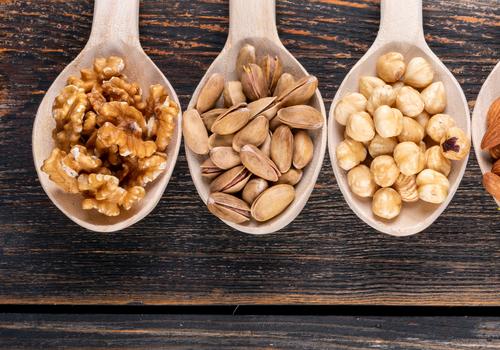All You Need to Know Before Adding Cheese to Your Diet
The cheese stands as a beloved dairy delight worldwide, enhancing the flavour of various dishes. Yet, its consumption harbours both beneficial and adverse effects on health. Striking a balance is key when incorporating cheese into your diet. Moderation serves as the cornerstone to mitigate its negative impacts while maximising its benefits. Experts suggest a prudent approach to cheese consumption, recommending indulgence no more than twice a week. With a mindful add-on, you can rest assured about the health benefits while minimising its bad impact on our body and health. You must have to go through detailed research regarding the consumption of cheese.
Optimal portions hover around 100 grams of fresh cheese or 50 grams of ripened varieties. This moderate intake safeguards against potential health risks associated with excessive cheese consumption, such as elevated cholesterol levels and increased sodium intake. By adhering to these guidelines, cheese enthusiasts can savour their favourite dairy delight without compromising their well-being. Balanced consumption not only minimises adverse effects but also ensures that the positive nutritional contributions of cheese, including calcium and protein, are harnessed optimally. Mindful cheese consumption fosters a harmonious relationship between flavour and health while maintaining your overall optimal health in the long run.
Highlighting Negative And Positive Impacts Of Cheese Consumption:
Positive Impact:-
Rich Source of Calcium: Cheese is a rich source of calcium, essential for maintaining strong bones and teeth. Adequate calcium intake, along with vitamin D, supports bone health and reduces the risk of osteoporosis, particularly in ageing populations. This makes it a healthy choice for every person, however, you need to consult with a professional if you are struggling with any disease.
Protein Content: Cheese is a good source of protein, providing essential amino acids necessary for muscle repair, growth, and overall body maintenance. Including cheese in the diet can contribute to meeting daily protein requirements, particularly for individuals following vegetarian or plant-based diets. This gives a proper source of protein consumption.
Nutrient Density: Cheese contains various essential nutrients such as phosphorus, vitamin B12, and zinc, which play crucial roles in metabolism, immune function, and overall health. Consuming cheese in moderation can help supplement the diet with these nutrients, promoting overall well-being. It comes with a diverse range of health benefits for you.
Satiety and Flavor Enhancement: The rich flavour and creamy texture of cheese can enhance the palatability of meals, making it easier to adhere to a balanced diet. Including moderate amounts of cheese in meals can enhance satiety, helping to curb cravings and prevent overeating of less nutritious foods. During your weight loss journey, you can add it to fear content.
Negative Impact:-
High in Saturated Fat: Cheese is often high in saturated fats, which can contribute to elevated cholesterol levels and increase the risk of heart disease if consumed excessively. Regular intake of saturated fats beyond recommended limits may lead to clogged arteries and cardiovascular complications.
High Sodium Content: Many types of cheese contain significant amounts of sodium, which can contribute to hypertension and water retention. Excessive sodium intake is associated with an increased risk of stroke, heart failure, and kidney disease, making it important to moderate cheese consumption, particularly for individuals with existing health conditions.
Calorie Dense: Cheese is calorie-dense, which can pose challenges for weight management if consumed in large quantities. Overindulgence in calorie-dense foods like cheese without balancing calorie intake through physical activity can lead to weight gain and obesity, increasing the risk of various health problems such as diabetes and joint issues.
Potential Lactose Intolerance: Some individuals may experience digestive discomfort due to lactose intolerance, a condition where the body lacks the enzyme needed to digest lactose, the sugar found in milk and dairy products like cheese. Consumption of cheese can exacerbate symptoms such as bloating, gas, and diarrhoea in lactose-intolerant individuals.
The Bottom Line:-
To sum up, cheese presents a dichotomy of both positive and negative effects on health. Moderation emerges as the linchpin, allowing individuals to enjoy its nutritional benefits like calcium and protein while mitigating risks such as elevated cholesterol and sodium levels. By exercising mindful consumption and portion control, cheese enthusiasts can indulge in its rich flavour without compromising overall well-being. Striking a balance fosters a harmonious relationship between taste and health, ensuring that cheese remains a delicious addition to meals without overshadowing the pursuit of a balanced diet and lifestyle. So, what are you stressing about? Add these delicious delights to your diet with moderation and enjoy your food.


